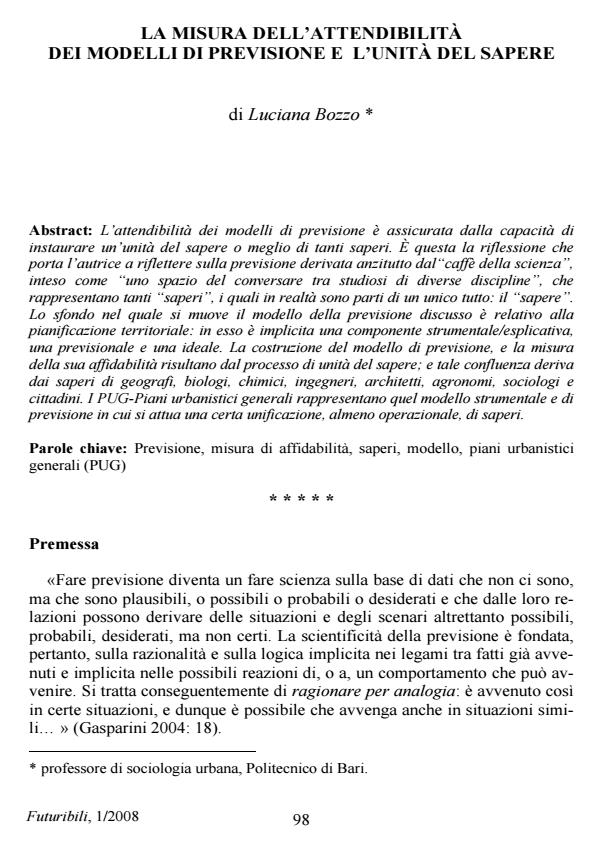La misura dell'attendibilità dei modelli di previsione e l'unità del sapere
Journal title FUTURIBILI
Author/s Luciana Bozzo
Publishing Year 2009 Issue 2008/1
Language Italian Pages 10 P. 98-107 File size 49 KB
DOI 10.3280/FU2008-001006
DOI is like a bar code for intellectual property: to have more infomation
click here
Below, you can see the article first page
If you want to buy this article in PDF format, you can do it, following the instructions to buy download credits

FrancoAngeli is member of Publishers International Linking Association, Inc (PILA), a not-for-profit association which run the CrossRef service enabling links to and from online scholarly content.
The degree of reliability of predictive models and the unity of knowledge - The reliability of predictive models is assured by the ability to establish a unity of knowledge, or rather of many branches of knowledge. This is the idea that leads the author to reflect on the prediction derived first of all from the "science café", defined as "a talking shop for scholars from a range of disciplines", who represent many branches of knowledge which are in fact a complete whole - "knowledge". The background for the predictive model discussed here is territorial planning, which encompasses an instrumental-explanatory component, a predictive component and an ideal. The construction of the predictive model and the degree of its reliability are produced by the process of unifying knowledge, and this confluence derives from knowledge of geographers, biologists, chemists, engineers, architects, agronomists, sociologists and private citizens. General Urban Development Plans stand as the instrumental and predictive model in which a certain unification of knowledge - at least operational - is achieved.
Luciana Bozzo, La misura dell'attendibilità dei modelli di previsione e l'unità del sapere in "FUTURIBILI" 1/2008, pp 98-107, DOI: 10.3280/FU2008-001006